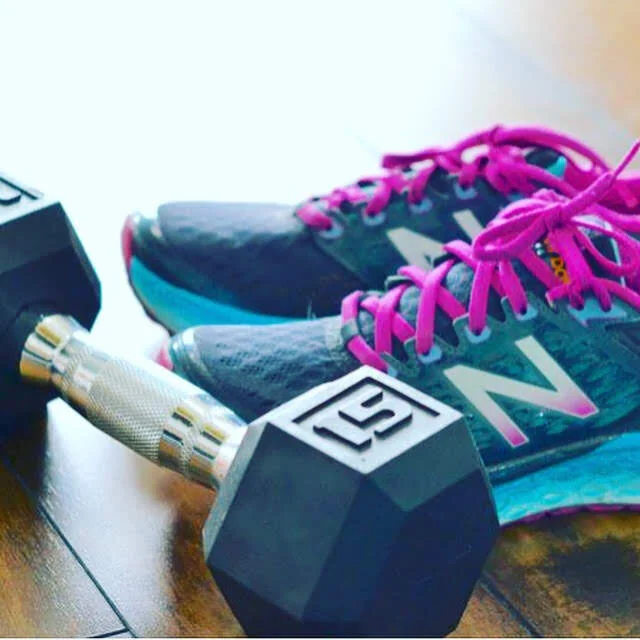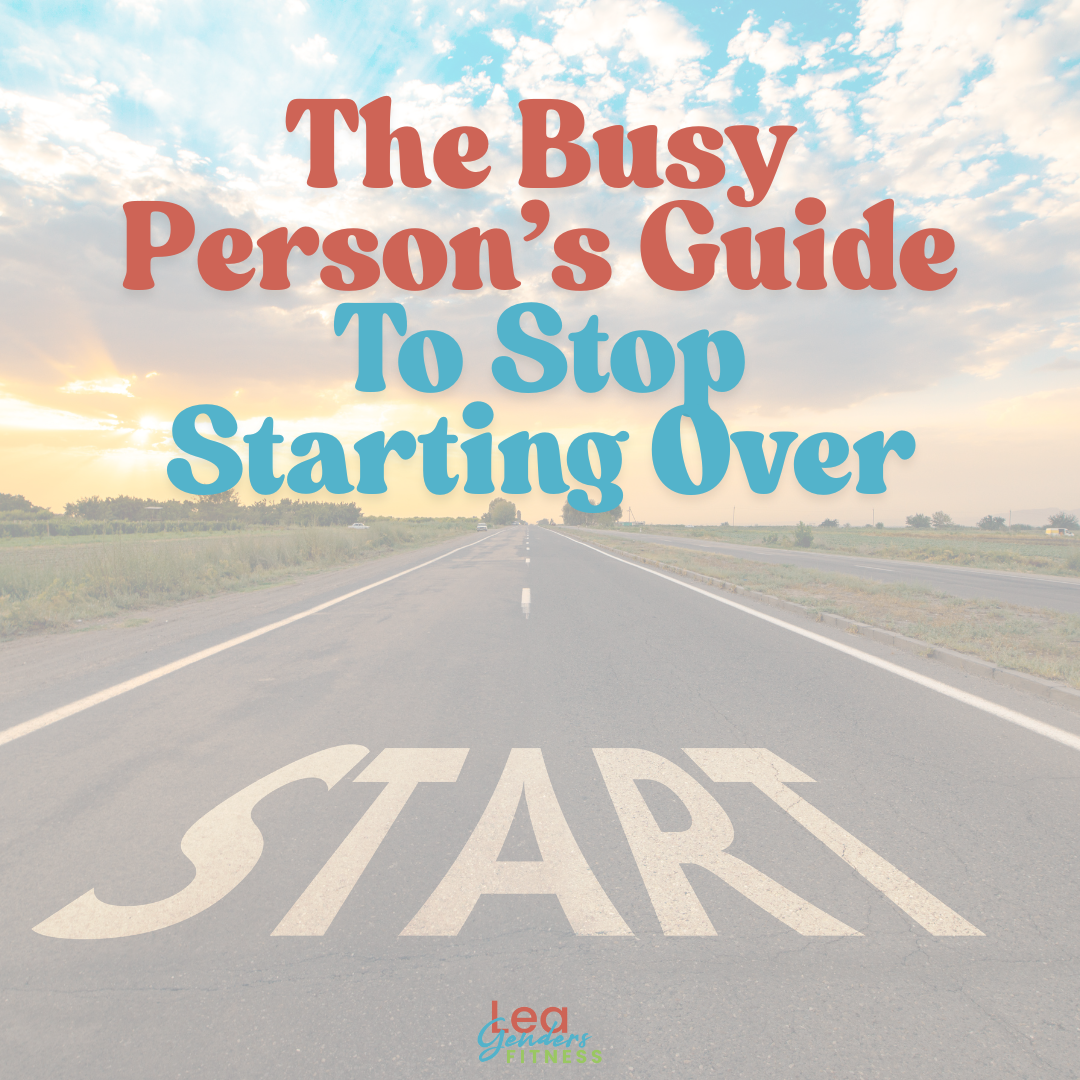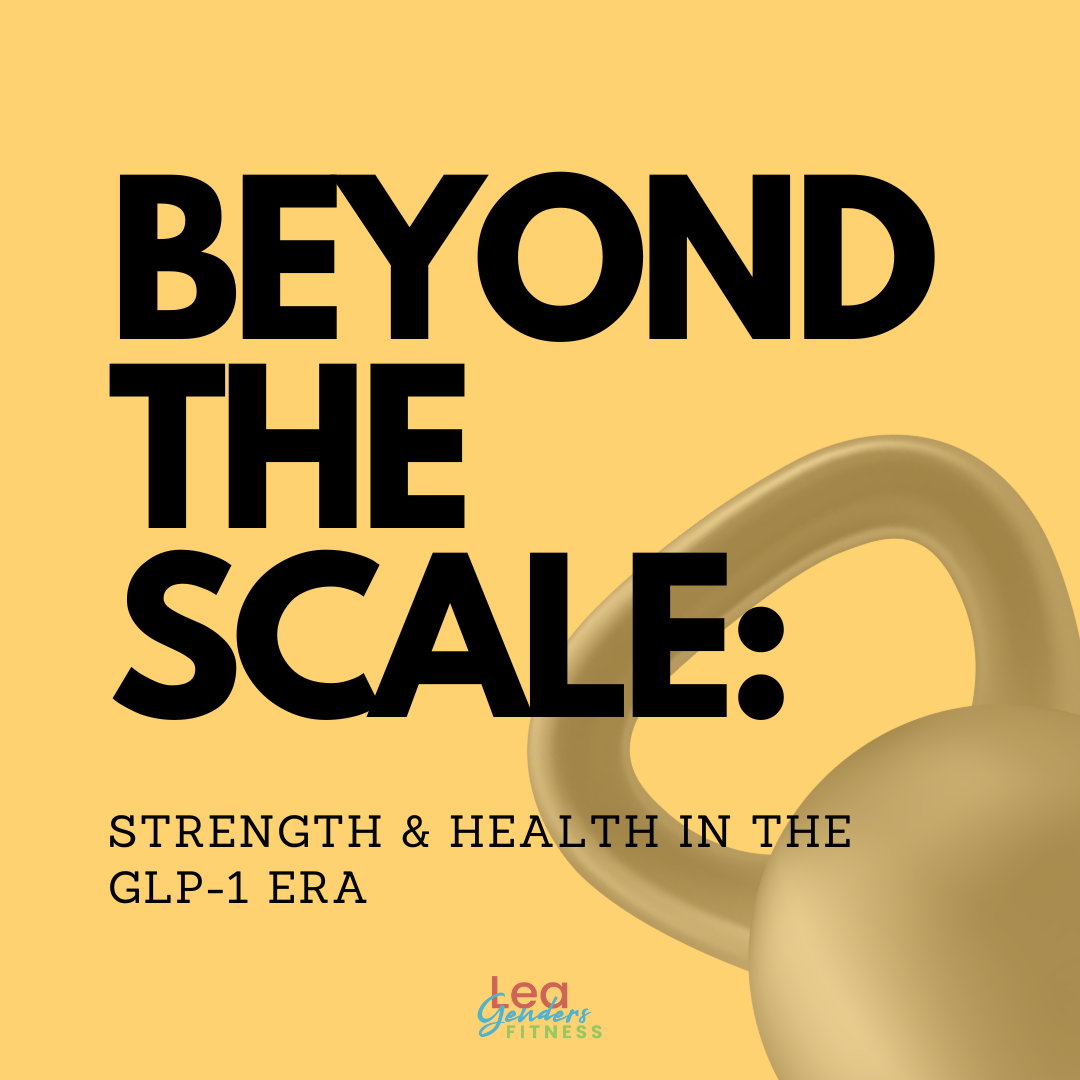The First Step is Knowing Your Why
To achieve your health and wellness goals, you must have a clear vision of where you want to go. It's always more than a lower number on the scale or skinny jeans. Dig deeper. Who do you want to be? What will be different? Why is it important to you? How does it feel? What does your social circle look like? How will your life be better? Use this data to plan the action steps needed to get there while aligning them with your identity and values. What matters to you? Ask yourself why.
It goes beyond six-pack abs or a particular time on the race clock. Change is hard, and if it doesn't have meaning beyond attracting strangers or social media attention, chances are you won't have the ability to ride the wave through the ups and downs.
When we connect our goals, values, and identity, they become real. When our goals have meaning and an emotional component, we can make choices that match the person we want to become. How will it feel to reach your goal? How can you start feeling that way right now?
Write it down. On paper. Yes, paper. Write your wellness vision in the present tense, as if describing your current reality!
Once you clarify why your goal is important, you can use that as a compass to direct your daily actions. I am offering a free resource to help create your wellness vision. If you prefer to go through it with me, fill out a coaching application here.
2. Autonomy and Self-Efficacy Is Essential For Behavior Change
Client-centered coaching means that the client leads the way. The client decides what they want to address, what is important to them, how to approach it, and what makes sense in their life. The coach provides support, guidance, and education (if needed and accepted by the client).
It may sound backward to some; they think, "Wait, isn't my coach supposed to tell me what to do so I can improve?" The coach may be the expert in fitness and health, but you are the expert on your own life, experiences, preferences, lifestyle, and background. For real change to happen, it must work in your life's context. Making lifestyle changes without regard to the client's real-life experiences will not reliably lead to long-term results. These two experts must work together.
If a coach handed you a meal plan and said, "Eat this to lose weight," but you looked it over and had foods you disliked, foods you had intolerances to, foods your kids wouldn't eat, and foods that weren't available at your local store, or you never prepared before. How likely are you to stick to it long enough for it to be effective? (besides, in most states, it is out of the scope of practice for trainers to prescribe meal plans.)
What if the coach asked you about your favorite foods, what you knew how to prepare, what new foods you were interested in trying, what your kids would eat, and what foods had cultural significance? Then, you worked together to create a plan that brought you closer to your goals. Sounds more likely to last, right? The difference here is the expert on your life and body (you) took the lead, while the coach helped guide.
Have you ever felt resistant or rebellious when someone dictated what you "should" do? It's human nature. We dislike people telling us what to do, which applies to coaching as much as anything else. We usually respond poorly to people barking orders at us (even when we think that is what we want), leading us to rebel against our best interests to hold on to our autonomy.
Self-efficacy is the belief in your ability to adopt and sustain a new behavior. You have to believe you can do it. A coach can't believe it for you (even though we wish we could!) but can work to help you see your potential.
Your autonomy and self-efficacy are critical factors in successful behavior change. You have to be in charge of your future and believe you can. It doesn't mean you don't need a coach, but when you decide to make changes, they should be meaningful, engaging, enjoyable, and appropriate for your current skill level. You can work with your coach to combine their expertise and yours to collaborate on the best plan for you.
3. Approach Goals with Unconditional positive regard
When I first became a trainer close to ten years ago, I worried I would not be a good coach, just by the nature of my personality. I'm a bit of an introvert (training is a people-person job!). I am not an in-your-face, motivate-you-by-intimidation, tough-love drill sergeant. Maybe I watched too many episodes of The Biggest Loser, watching Jillian Michaels scream in the faces of her crying victims, err, I mean trainees and thought that is what a good trainer does.
As I gained experience, I learned that most people respond better to a compassionate coach who supports them and finds the positive in most situations. If someone wanted a David Goggins or Jillian Michaels-type trainer, plenty were out there telling people to toughen up and get over it; that just wasn't me.
Over the years, I discovered that my personality was not a hindrance but a strength in this field. But it wasn't until I took the level two master health coaching class that I learned that compassionate coaching, far from being a soft approach, is scientifically proven more effective than harsh discipline for long-term behavior change.
Despite the success of popular television trainers and social media personalities, long-term behavior change does not reliably result from force, fear, or intimidation. Shame is a poor motivator. If it worked, wouldn't it have worked by now?
On the other hand, leaning into strengths, using failures and setbacks as learning opportunities, and looking for the bright spots in every situation bring optimism and hope into the change process. It's not about cheerleading or suppressing negative emotions but calling out positive progress and strengths, no matter how small. Any step forward is a step in the right direction. Success builds upon success. If you only focus on one measure of progress (for example, the scale), you are more likely to get demotivated if you don't see the desired changes immediately. A coach can help you recognize objective and subjective progress markers and celebrate all the small wins on the way to reaching your big goals.
Lean into your strengths and focus on the good to overcome the innate human negative bias.
As a self-proclaimed introvert, I don't aim to teach large, high-energy fitness classes but instead lean into my strengths and develop deep connections with my one-on-one clients, playing into my natural strengths.
As someone who gravitates towards a more gentle approach to fitness, meeting people where they are and slowly and appropriately challenging them to aim higher can help my clients more effectively than the go-hard-or-go-home approach to fitness.
What are your strengths? How can you lean into them to reach your personal goals?
4. How you talk to yourself is critical to change.
I read a book recently that said if the voice inside your head were a person outside you, you would kick it to the curb in less than a day. You wouldn't put up with someone who talked the way your thoughts do. But we accept it. Worse, we believe those thoughts.
We don't even realize how bad it is. I have decently high self-esteem, and when I tried to recognize, notice, and name those unhelpful thoughts, I was shocked at how prominent they were...and I like myself!
Some were self-deprecating humor: When I went to a baby shower and left the gift on my kitchen table. "You're an idiot; you'd forget your head if it weren't attached!" When I tripped over the rug in the gym, "Ah, Lea, you're such a clutz. Keep it up, and you will hurt your other foot!" Some were reactive: "Ugh, why are you so stupid?" others were straight-up mean, like, "Of course, that happened to you; you probably deserved it."
I decided to pay attention to how I talked to myself, and if my thoughts weren't helpful in some way, I would dismiss them as untrue or reframe them in a way that was beneficial for future improvement. Boy, these things came up a lot more than I realized, but I started to recognize them in myself (and in what others were saying about themselves)!
I am not stupid; I did something thoughtless—a big difference.
I am not a clutz. I didn't see the rug and took a misstep. Next time, I'll work to pay more attention.
I am not an idiot. I have a lot on my mind, and I was rushing to get out the door when I forgot a critical item. To avoid this in the future, I will make a list when I am not thinking clearly.
See the difference?
Do you think any of these?
I'm so lazy; why did I sleep instead of working out?
If I had been more disciplined, I wouldn't have had dessert.
I am a loser; I can't seem to get my shit together.
I always quit when it gets hard!
I'm never going to figure this out!
Does this sound familiar? Join the club, fellow human. I generally have high self-regard, and when I started paying attention, I noticed these thoughts were slipping by unnoticed all the time.
Positive or at least neutral self-talk is essential for behavior change because you will not make positive, uplifting changes if you continue to berate yourself all day.
When you are kind to yourself, you leave room for mistakes and learning. You grow by thinking through your errors without judgment but with an eye for future improvement. When you don't limit yourself with unhelpful labels, you are more likely to see the potential for future growth and progress.
When you have compassion for yourself, it gives you the mental tools to overcome obstacles. You can't rise above the way you see yourself. I wrote more on self-compassion here.
5. Behavior Change is Skill Building
People often think they can't or won't change their behavior because they lack the motivation, self-discipline, or willpower needed to succeed, but the truth is that behavior change is more about skill and habit building than an internal drive.
Pushing, forcing, insisting, and white-knuckling are ineffective strategies for long-term change. Learning with a growth mindset, patience, and perseverance is more effective.
What skills do you need to develop to reach your goals?
Mindset skills?
Movement skills?
Nutrition skills?
Time management skills?
Stress management skills?
Self-regulation skills?
They are all related.
Fat loss goals aren't only about eating less. If you are not adequately managing stress or have poor sleep habits, that could affect your outcome. Do you have cooking skills? What about tracking? Or body awareness (i.e., tuning into your hunger and fullness signals)? Are you thoroughly chewing your food? Seriously, sometimes we are so distracted that we don't even notice we are not.
Running a faster marathon time isn't just about running. Your results could be hampered if you don't fuel appropriately, sleep well, or operate with a growth mindset. How to develop the skills to run a marathon.
You could sabotage a goal to build muscle and strength if your form needs to be corrected, you can't make the time for consistent exercise, or you’re not eating enough protein. I said it once before, but it bears repeating now: sleep is essential to operate as a functional human being and even more important if you have health and fitness goals.
It's all connected; developing the necessary habits and skills can catapult your results.
When you break it down, you can learn many skills that can move you toward your goals. You can choose what feels meaningful and important, what seems like a fun challenge, and what you want to work on next. It's liberating to realize that you don't need more discipline or toughening up. Instead, you can take small steps forward that snowball over time into big results.
I took this master coaching class to improve my skills and help my clients reach their goals, but I grew so much personally in the process. At the risk of sounding dramatic, the class didn't just change my coaching; it changed my life for the better. Now, I am taking the next steps to become a NBHWC board-certified health coach.
Did you learn anything you can take away and use to work towards your goals? Developing a wellness vision that connects your goals with your identity and values is critical. Autonomy and self-efficacy are essential for behavior change. Take responsibility for your choices and actions. Unconditional positive regard is scientifically more effective than shaming or criticizing. How you talk to yourself matters; be kind! You can't rise above how you see yourself. Developing skills and habits will bring you closer to your goals more effectively than white-knuckling and suffering!
Do you want a partner and a guide towards reaching your goals? Fill out a coaching application to get started!
Did you like this post? Do you know someone who might benefit? It helps me when you share with your friends and followers.
















If you're tired of starting over every Monday, I'm showing you how to build a wellness plan that fits your real life. It's the key to making progress that lasts. Here's how to get started.